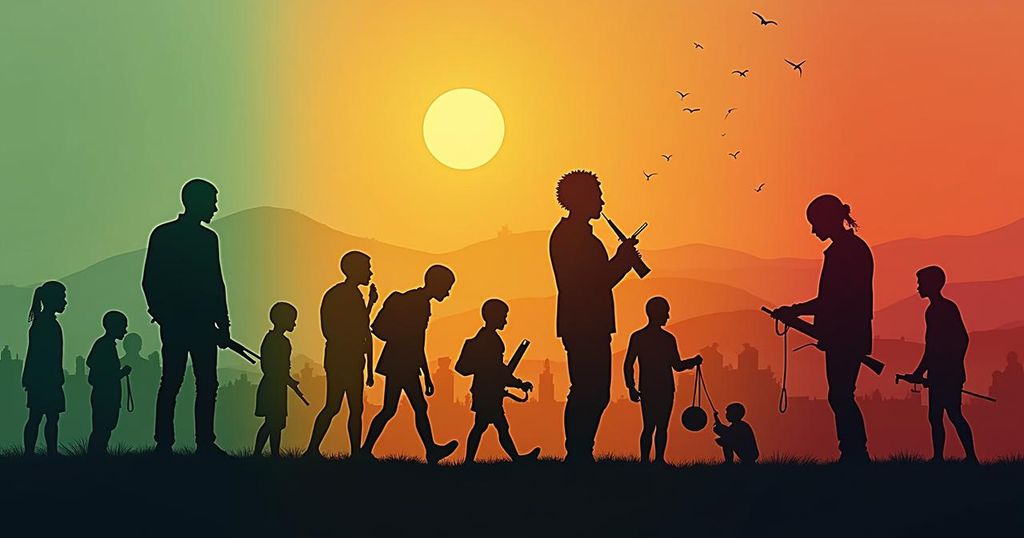In 2018, Eritrea underwent significant diplomatic changes, marked by a peace agreement with Ethiopia, improved relations with Djibouti, the lifting of UN sanctions, and election to the UN Human Rights Council. These developments positioned Eritrea as an integral player in regional stability and cooperation.
In 2018, Eritrea entered a transformative phase, moving away from its longstanding perception as a reclusive state to becoming a pivotal player in the Horn of Africa. Major developments unfolded throughout the year, particularly following the critical June peace agreement between Eritrea and Ethiopia. Yemane Meskel, Eritrea’s Information Minister, acknowledged that the nation had endured negative portrayals in the media; however, he emphasized that Eritrea upheld its relationships with development partners during these turbulent times. One of the most significant milestones occurred in July when Ethiopian Prime Minister Abiy Ahmed and Eritrean President Isaias Afwerki signed a landmark peace and cooperation agreement, effectively ending long-held hostilities. This development not only fostered improved relations between the two nations but also initiated a diplomatic thaw that benefitted the broader region. Eritrea subsequently established better relations with Somalia and began addressing its estranged ties with Djibouti. In September, the relationship with Djibouti saw progress during a historic meeting facilitated by the Saudi government. Foreign Minister Adel bin Ahmed Al-Jubeir noted that this meeting had the potential to foster peace and stability between Eritrea and Djibouti, who were mending ties following territorial disputes. November marked another pivotal moment as the United Nations Security Council lifted an arms embargo and sanctions on Eritrea, responding to its peace initiatives with Ethiopia and Djibouti. This decision, endorsed unanimously, reflected a growing consensus in the region and was influenced by a shift in the stance of the United States. Moreover, in October, Eritrea was elected to the United Nations Human Rights Council, a move that sparked controversy due to the country’s record on human rights. Although rights organizations criticized this election, Eritrea acknowledged its human rights challenges and signaled a commitment to address these issues over time. The reopening of border crossings between Eritrea and Ethiopia in September symbolized a new era of freedom of movement, allowing citizens to traverse the borders after decades of restrictions. While enhanced trade flowed into Eritrea’s markets, a parallel refugee influx was noted, with reports indicating some restrictions on crossings at times. This development signified a move towards greater connectivity and integration between the two nations.
The events of 2018 represented a significant turning point for Eritrea, a nation that had long been isolated both politically and socially due to decades of contentious relations with its neighbors, particularly Ethiopia. Following years of conflict, the diplomatic overtures initiated by Prime Minister Abiy Ahmed marked a dramatic shift in regional dynamics. The opening of dialogues and agreements addressed longstanding issues such as borders and human rights. This reassessment of Eritrea’s international status was reflected in relevant diplomatic maneuvers and engagements with bodies such as the United Nations.
In summary, the year 2018 was pivotal for Eritrea as the nation transitioned from a state of isolation to an engaged participant in regional diplomacy. The landmark peace agreement between Eritrea and Ethiopia, the reconciliation with Djibouti, the lifting of international sanctions, and the election to the UN Human Rights Council were defining moments that reshaped Eritrea’s trajectory. These developments highlight the potential for improved relations and greater stability in the Horn of Africa.
Original Source: www.africanews.com






